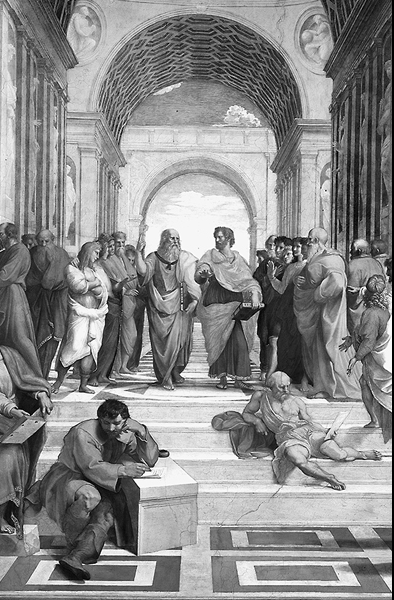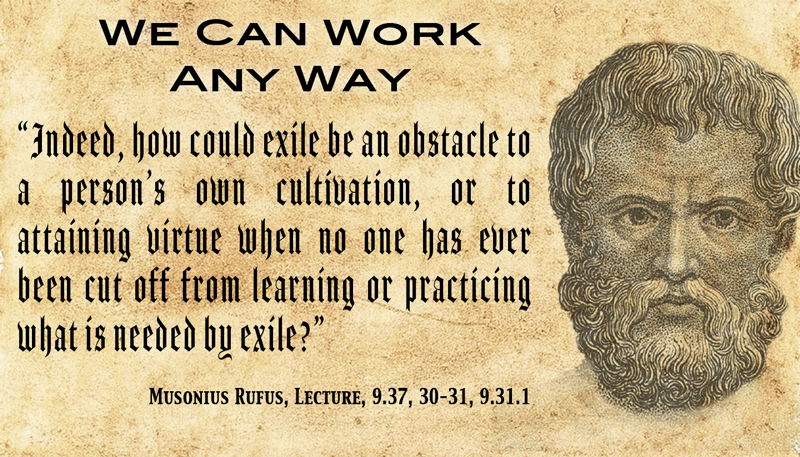Musonius Rufus was exiled three (03) times (twice by Nero and once by Vespasian), but being forcibly expelled from his life and home did not affect his study of philosophy. In his own way, he responded, ‘— Alright! I can work this way…’ And he did, managing to fit in some meetings with a student named Epictetus between his exiles, thus helping to bring Stoicism to the world.
Epictetus, in turn, was deeply influenced by his teachings and incorporated many of his ideas into his own philosophy. He believed in the importance of self-discipline, self-control, and living in accordance with nature. Musonius Rufus’s emphasis on virtue and ethics had a lasting impact on his students, with Epictetus being one of his disciples.
Exile, as mentioned earlier, can be seen in different ways by different people. Some individuals choose to use exile as an opportunity to deepen self-reflection and self-knowledge. The forced separation from familiar and social environments often provides a mental space to examine one’s own choices, values, and beliefs. This can lead to a greater understanding of oneself and the identification of areas where personal growth is needed.
On the other hand, there are those who react to exile with feelings of victimization, vengeance, and anger. These individuals may focus on the perceived injustice of their situation and feel that they have been treated unfairly. However, this victim mentality can be harmful as it hinders the ability for constructive self-critique. True self-reflection involves looking beyond external circumstances and acknowledging personal responsibility for past decisions and the consequences that led to exile.
Furthermore, Musonius Rufus’s example also illustrates the importance of receiving feedback as a valuable learning opportunity, even in times of exile and adversity. Stoicism not only advocates self-reflection but also encourages seeking external insights to enhance self-understanding and refine moral conduct. Musonius, by resisting self-victimization and remaining open to learning, demonstrated a fundamental quality of Stoics: the willingness to accept constructive criticism and turn it into tools for personal growth. This underscores the importance of not isolating oneself in a bubble of self-regard but rather cultivating an environment where divergent opinions and external assessments can contribute to continuous development.
Musonius’s ability to leverage encounters with his student Epictetus during exile can be seen as an example of how feedback and interaction with others can serve as a valuable mirror. These interactions offered Musonius the opportunity to share his ideas, receive different perspectives, and thus refine his own philosophical convictions.
In the end, the story of Musonius Rufus offers us an inspiring example of how exile, while a profoundly challenging experience, can be faced with resilience and wisdom. His dedication to philosophy and his commitment to sharing his knowledge with others, even in the face of formidable obstacles, echo the Stoic idea that virtue and self-improvement are worthy pursuits regardless of external circumstances.


Leave a Reply